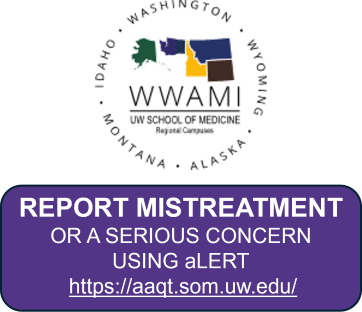Learning Environment
What is the learning environment?
Throughout medical school, students learn in a variety of environments such as classrooms, small groups, testing sites, clinical skills workshops, primary care practicums, hospitals, and clinics. In addition to learning in a wide array of settings, learning takes place from a variety of teachers, including faculty, lecturers, instructors, physicians, residents, fellows, and fellow classmates. Regardless of the environment where a student is learning or who they are learning from, a learning environment should be physically safe, psychologically secure, beneficial to the student, and with an overall sense of encouragement for the student’s learning. Additionally, evaluation of the learner should be fair, impartial, objective, and unbiased.
Learn more here: Introduction to the Learning Environment module.
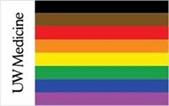
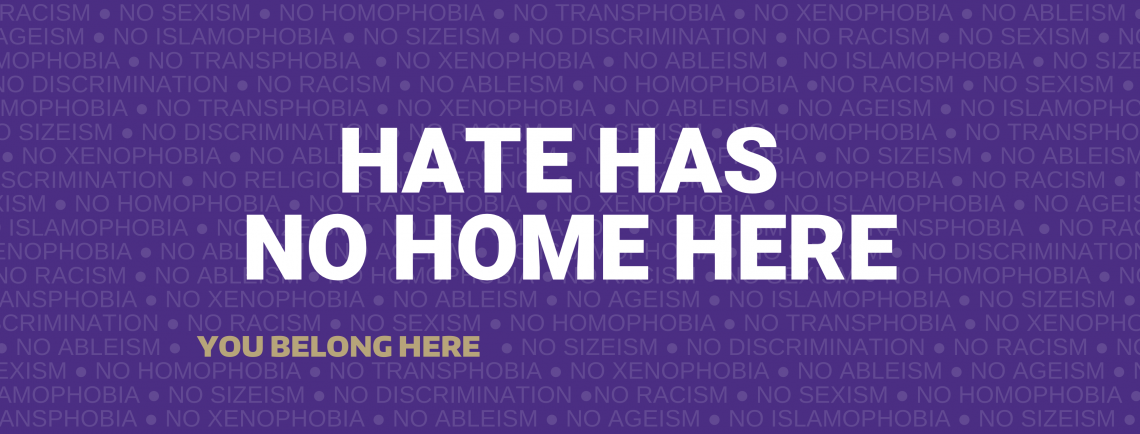
We acknowledge the land we occupy today as the traditional home of the Duwamish, Allied Tulalip, Muckleshoot, and Suquamish tribal nations. Without them, we would not have access to this working, teaching, and learning environment. We take the opportunity to thank the original caretakers of this land who are still here.
MELINDA FRANK
EdD EdS MSc (she/her/hers)
DIRECTOR
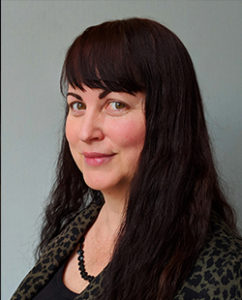
Melinda Frank joined Student Affairs as Director of the Learning Environment in 2018. She has a background in educational leadership (Ed.D.), higher education (Ed.S.), bioethics (Erasmus Mundus joint M.Sc.), and psychology (B.S.). She enjoys working with individuals from diverse backgrounds and strives to maximize student learning by supporting well-being and self-advocacy in an environment honoring dignity and respect. Her hobbies include attending music festivals and traveling the world (she has been to over 100 countries).
KARLA KELLY
MD CPA (she/her/hers)
PROGRAM OPERATIONS SPECIALIST
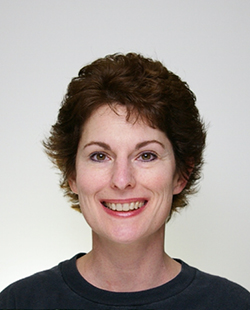
Karla Kelly joined the Learning Environment team as the Program Operations Specialist in 2020. This position plays a key role in providing support for the promotion of a positive learning environment for students across WWAMI. As an alumna of the UW School of Medicine and staunch student advocate with experience in data and systems analysis, she brings a unique perspective and skill set to her role. Her hobbies include travel, reading, music, K-dramas, and spending time with her husband.
Student Mistreatment Policy
The University of Washington School of Medicine (UWSOM) is committed to a safe and supportive learning environment that reflects the institution’s values: excellence, respect, integrity, compassion, altruism, and accountability in all endeavors. Diversity of ideas, perspectives and experiences are integral to our mission. All individuals in our UWSOM community are responsible for creating a welcoming and respectful environment where every person is valued and honored. Mistreatment of students by the faculty, staff and peers at UWSOM is prohibited. This mistreatment includes incidents of humiliation; harassment or discrimination based on race, color, creed, religion, national origin, citizenship, sex, pregnancy, age, marital status, sexual orientation, gender identity or expression, genetic information, disability, veteran status, socioeconomic status, political beliefs or affiliations, and geographic region; and the use of grading or other forms of assessment in a punitive manner. Expectations of teachers and learners are described more fully in the Policy on Professional Conduct.
Effective: Current and Under Review
Last updated: May 1, 2023
Policy Contact: UW School of Medicine, Student Affairs Office, adminSA@uw.edu, Educational Quality Improvement Office, eqi@uw.edu
Mistreatment includes these 19 behaviors:
This list is not comprehensive; we invite students to share any serious concerns about their learning environment. |
The Learning Environment Reporting Process
If a student’s safety or another individual’s safety is at risk (physical or sexual assault, impaired physician, or any egregious situation), first call 911, visit the emergency room, or take other actions appropriate to the situation. Once safe, report your learning environment concern using one of the options listed below.
Four reporting options
Students who wish to report mistreatment or a serious concern are encouraged to do any or all of the following:
1. Report directly to Melinda Frank, Director of the Learning Environment, by email at mmfrank@uw.edu, by phone at 206.616.1816, or you may use this tool to make an appointment to meet with her in person, by phone, or via Zoom. Her office is located in T-559 of the Health Sciences Building (Seattle campus). Melinda is the point person for any student with a concern about their learning environment or about any mistreatment experienced or witnessed. All UWSOM students, regardless of their year in the curriculum and regardless of where they are physically located, may contact the Director of the Learning Environment at any time.
2. Report via aLERT, the Learning Environment Feedback Tool. This tool was created so that students and others can submit anonymous or self-identified feedback about any UWSOM learning environment, including the WWAMI Foundations sites and UW-affiliated clinical sites. You will be able to provide a description of your concern and indicate your follow-up preference. While you will have the option of reporting completely anonymously, it is preferable if you identify yourself so that we can follow up with you, including getting more information if needed, as well as assuring that you are safe. We will still take action as appropriate even if you submit your concern anonymously.
3. Report in any UWSOM evaluation. Students in the Foundations Phase can detail concerns in Medical Student of Primary Care Practicum Faculty (MSPCP) evaluations and End-of-Block evaluations. Students in the Clinical phase can detail concerns in Medical Student of Educator (MSE) evaluations. (Please don’t use the MSE or MSPCP to submit feedback that is not about the educator being evaluated, though; use aLERT instead.)
4. Report to any UWSOM dean. All deans can receive reports, including Foundations deans and Clinical deans.
Note: Upon submission of a non-anonymous learning environment concern (low respect scores, mistreatment, and/or confidential comments) reported via eValue evaluations (MSE, MSPCP) or the aLERT (Learning Environment Reporting Tool), students will receive a confirmation email with a ticket number for tracking purposes and will receive status updates by email. Additionally, students who submitted with their UW net ID can track status via the online Learning Environment Feedback Tracker.
What happens with the feedback I submit?
We take your feedback very seriously and will take appropriate steps to address your concerns. The Director of the Learning Environment will be the person who receives submissions and will handle each one with the utmost confidentiality, ensuring that your identity is safeguarded throughout the entire response process. Each student will have the opportunity to discuss their concern with the Learning Environment Director further if desired.
Student concerns are reviewed by a small group of deans (Assistant Dean for Basic Sciences, Assistant Dean for Clinical Curriculum, Assistant Dean for Student Affairs, Associate Dean for Student Affairs, & Associate Dean for Curriculum) and the Learning Environment (LE) team (Director of the LE & LE Program Operations Specialist) at Incident Response and Oversight Committee (IROC) meetings, and a determination is made about appropriate follow-up with the individual(s) named. Interventions could include feedback about the behavior, remediation, monitoring, or removal from teaching. All interventions are tracked.
Anonymized individual reports go to the responsible party designated by IROC to take action in response to the student’s concern—typically, Clerkship Directors and Department Chairs—who may discuss data and comments with their clerkship faculty and residents/fellows, but only after your grade has been submitted (or sooner in very serious cases in which case you will be notified first).
We are required to report to the UW Civil Rights Compliance Office (CRC) potential prohibited conduct involving students as detailed in the ‘Prohibited conduct’ section of the CRC’s Employee Reporting Obligations webpage. In this situation, we will submit to CRC the name of the preceptor involved, the prohibited behavior reported, and a brief description of the concern, including date, time, and location, if known, but we will withhold your name unless you tell us otherwise.
Additionally, if a student indicates having been subjected to (or witnessing another individual being subjected to) unwanted sexual advances or having been asked (or witnessing another individual being asked) to exchange sexual favors for grades or other rewards, then UWSOM will share with UW SafeCampus, the University of Washington’s violence-prevention and response program, very limited information. We will share only the name of the preceptor involved and the mistreatment behavior that was specified — no identifying student information or details of the student’s report will be shared, including names, dates, etc.
We encourage students who experience sex- or gender-based violence, harassment, or discrimination to contact UW SafeCampus at 206.685.7233, which may be done anonymously. SafeCampus will provide information about your rights, available resources, and reporting options.
Could giving feedback negatively affect my grade?
No. Reports made using one of the four methods outlined above are not shared with anyone until your grade has been finalized. The only exception to this is if we believe you or another individual is in imminent danger, and if this is the case, we will contact you before proceeding.
Other avenues to report mistreatment and talk about concerns
Students can always speak directly with block directors and leads and clerkship directors, when appropriate. Note that this is outside the formal reporting process outlined above, thus certain protections may not be fully in place. Students who might also wish to make a formal report to an entity that is external to the School of Medicine have several options. To learn more about these options, visit our Reporting and Resolution Resources webpage. Students may choose to discuss concerns with College mentors, counselors, staff members, the Office of Healthcare Equity, etc., to determine the best way to report.
What are the protections for me against retaliation?
Students of the University of Washington who file a report are always protected under UW Executive Order No. 81, regardless of where they might be geographically in the 5-state WWAMI region:
“The University is committed to fostering an environment in which all members of its community can participate fully in University programs and activities free from discrimination, harassment, sexual misconduct, and retaliation. This order establishes the University’s standards for preventing and responding to such conduct, including compliance with applicable federal and state laws, which include but are not limited to:
- Title VI and Title VII of the Civil Rights Act of 1964,
- Title IX of the Education Amendments of 1972,
- Violence Against Women Act (VAWA) and Jeanne Clery Act,
- Americans with Disabilities Act (ADA) and Section 504 of the Rehabilitation Act,
- Washington State Civil Rights Initiative (I-200), and
- Washington Law Against Discrimination (WLAD).
Statement of Nondiscrimination: The University prohibits discrimination in all programs and activities, including education, employment, and patient care, based on an individual’s actual or perceived protected characteristics. Protected characteristics include race, color, creed, religion, national origin, citizenship, sex, pregnancy, age, marital status, sexual orientation, gender identity or expression, genetic information, disability, or veteran status. Upon learning of conduct that may constitute discrimination, the University will take prompt and effective action to address it, remedy its effects, and prevent recurrence.”
Learning Environment committee
The Learning Environment committee was formed to ensure the best educational experiences for our medical students, staff, and faculty by continuously proactively addressing, monitoring, and responding to issues in the learning environment across the WWAMI region.
History of the committee
The Liaison Committee on Medical Education (LCME), the medical school accrediting body, issued citations for challenges in the learning environment based on our students’ experiences of mistreatment as reported in the Association of American Medical Colleges Graduation Questionnaire results. This is a nationwide issue, but our rates of students reporting mistreatment were higher during this time period than the national average. A number of interventions were deployed which resulted in notable improvement.
A new era
Thanks to everyone’s dedication along with multiple interventions to improve the learning environment, mistreatment rates trended downward, and in 2020, the school was deemed fully compliant by the LCME with regards to student mistreatment. While this is something to celebrate, there is always more work to be done. The Learning Environment committee partners and coordinates with other entities across UWSOM, UW Medicine, and throughout the WWAMI region, centered on the idea that the learning environment touches all aspects of medicine. The learning environment is impacted by anyone who is interacting with students including peers, administrators, staff, faculty, researchers, attendings, residents, fellows, allied health professionals, and, of course, patients. The Learning Environment committee will continue to strive to promote a positive learning environment with the goal of ensuring a welcoming, respectful, inclusive, safe, and supportive learning environment, one that is conducive to learning, fosters a sense of belonging for all students and is free of mistreatment.
Membership
The Learning Environment committee aims to achieve representation from across the School of Medicine and WWAMI so that its members can benefit from rich perspective.
| Position | Voting/Non-voting | Last Name | First Name | Site |
|---|---|---|---|---|
| Assistant Dean for the Colleges | Voting | Jackson | Molly | Seattle |
| Center for Leadership & Innovation in Medical Education (CLIME) | Non-voting | Mulligan | Kate | Seattle |
| Clerkship Administrator-Elective Clerkships | Non-voting | Seiler | Kristen | Seattle |
| Clerkship Administrator-Required Clerkships | Voting | Fear | Sara | Seattle |
| Clerkship Director | Voting | Mendiratta | Vicki | Seattle |
| Clinical Dean – Regional | Voting | Doty | Barb | Alaska |
| Clinical Dean – Seattle | Voting | Jauregui | Joshua | Seattle |
| Co-Chair | Voting | Frank | Melinda | Seattle |
| Co-Chair | Voting | Clauser | Janelle | Spokane |
| Communications | Non-voting | TBD | TBD | Seattle |
| Data | Non-voting | Campion | Michael | Seattle |
| Departmental Chair/Vice Chair-Fourth Year Clerkships | Non-voting | TBD | TBD | Seattle |
| Departmental Chair/Vice Chair-Third Year Clerkships | Voting | TBD | TBD | Seattle |
| Director for Curriculum Equity | Voting | Gerrish | Sarah | Seattle |
| Director of Medical Student Equity Services | Voting | Shaffer | Jyl | Seattle |
| Disability Resources for Students (DRS): UWSOM Access Specialist | Voting | TBD | TBD | Seattle |
| Educational Quality Improvement (EQI) | Non-voting | Engle | Kellie | Seattle |
| Evaluation | Non-voting | Schaad | Doug | Seattle |
| Faculty Development | Voting | Combs | Heidi | Seattle |
| Foundations Block Lead | Voting | Willford | John | Wyoming |
| Foundations Dean, Regional | Voting | TBD | TBD | TBD |
| Foundations of Clinical Medicine (FCM) Faculty | Voting | Calcavecchia | Julie | Seattle |
| Graduate Medical Trainee (GME) | Voting | TBD | TBD | TBD |
| Learning Environment Director | Voting | Frank | Melinda | Seattle |
| Medical Student Association (MSA) Student Representative | Voting | Tripoli | Tori | Idaho |
| Medical Student Association (MSA) Student Representative | Non-voting | Massaad | Camille | Idaho |
| Member At Large – Regional | Voting | Ouert | Kayla | Montana |
| Member At Large – Seattle | Voting | Kiefer | Meghan | Seattle |
| MSTP Student Representative-First Year | Voting | TBD | TBD | Seattle |
| MSTP Student Representative-Third Year | Non-voting | Blackburn | Sophie | Seattle |
| Office of Healthcare Equity (OHCE) | Voting | Kanter | Jonathan | Seattle |
| Organization of Student Representatives (OSR) | Voting | Miller | Dylan | Idaho |
| Organization of Student Representatives (OSR) | Non-voting | Snyder | Shelby | Seattle |
| Organization of Student Representatives (OSR) | Non-voting | Almeria | Audrey | Spokane |
| Organization of Student Representatives (OSR) | Non-voting | Compton | Stephen | Alaska |
| Regional Foundations Representative | Voting | Clauser | Janelle | Spokane |
| Rural Programs | Voting | McCarthy | John | Spokane |
| Student Affairs | Voting | Brice | Erica | Seattle |
Learning environment resources
Resources compiled for use by all UWSOM students while on clinical rotations:
- Demographics and leisure opportunities for each clerkship location: This list of demographics and leisure opportunities by clerkship location includes population size, links to population by race/ethnicity, parks and other attractions, and unique experiences and opportunities.
- Community resources for each clerkship location: This document provides links to community resources available in each clerkship location to support all students and help them feel connected during their time there.

